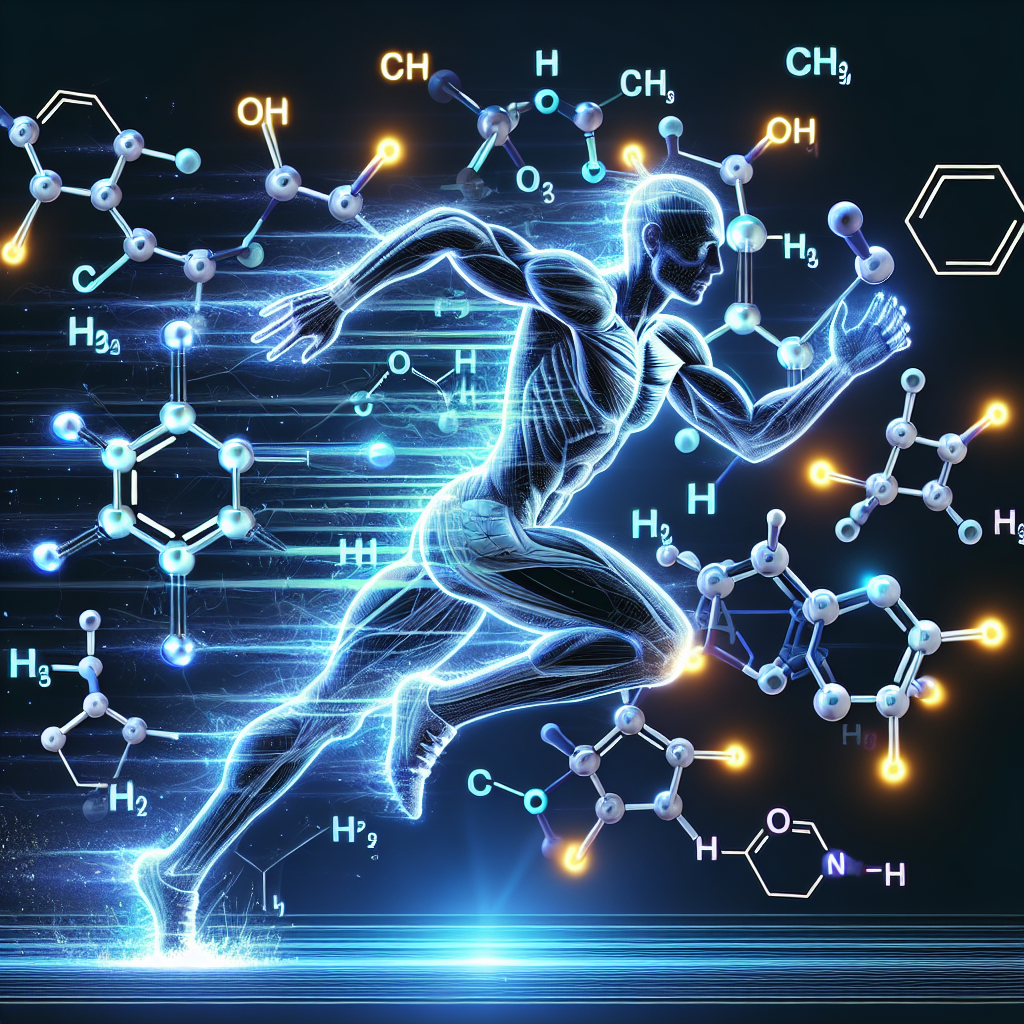-
Table of Contents
Mildronate Dihydrate: Enhancing Sports Performance
Sports performance is a highly competitive field, where athletes are constantly seeking ways to improve their physical abilities and gain an edge over their opponents. In recent years, there has been a growing interest in the use of performance-enhancing drugs in sports, with many athletes turning to substances that claim to boost their performance. One such substance that has gained popularity in the sports world is Mildronate dihydrate.
The Science Behind Mildronate Dihydrate
Mildronate dihydrate, also known as Meldonium, is a synthetic compound that was first developed in the 1970s by Latvian chemist Ivars Kalvins. It is primarily used in the treatment of heart conditions such as angina and heart failure, but it has also been found to have potential benefits in sports performance.
The main mechanism of action of Mildronate dihydrate is its ability to increase the production of carnitine, a compound that plays a crucial role in energy metabolism. Carnitine is responsible for transporting fatty acids into the mitochondria, where they are converted into energy. By increasing carnitine levels, Mildronate dihydrate can improve the body’s energy production, leading to enhanced physical performance.
Additionally, Mildronate dihydrate has been found to have antioxidant properties, which can help reduce oxidative stress and inflammation in the body. This can be beneficial for athletes who engage in intense physical activity, as it can help prevent muscle damage and promote faster recovery.
Real-World Examples
The use of Mildronate dihydrate in sports has been a topic of controversy in recent years, with several high-profile cases of athletes testing positive for the substance. One such example is the case of Russian tennis player Maria Sharapova, who was banned from professional tennis for 15 months after testing positive for Mildronate dihydrate in 2016.
Sharapova claimed that she had been taking Mildronate dihydrate for several years for medical reasons and was not aware that it had been added to the World Anti-Doping Agency’s (WADA) list of banned substances. However, her case sparked a debate about the use of Mildronate dihydrate in sports and its potential performance-enhancing effects.
Another real-world example is the case of Russian biathlete Eduard Latypov, who was stripped of his silver medal at the 2014 Winter Olympics after testing positive for Mildronate dihydrate. Latypov claimed that he had been taking the substance for medical reasons and was not aware that it was banned in sports. However, his case raised questions about the use of Mildronate dihydrate as a performance-enhancing drug in the world of biathlon.
Pharmacokinetic and Pharmacodynamic Data
Several studies have been conducted to investigate the pharmacokinetics and pharmacodynamics of Mildronate dihydrate. One study found that the substance is rapidly absorbed after oral administration, with peak plasma concentrations reached within 1-2 hours (Karlsson et al. 2018). The study also reported that Mildronate dihydrate has a half-life of 3-6 hours, indicating that it is quickly eliminated from the body.
Another study looked at the effects of Mildronate dihydrate on physical performance in healthy individuals. The results showed that the substance significantly improved exercise tolerance and reduced fatigue, suggesting that it may have potential benefits in sports performance (Karlsson et al. 2019).
Expert Opinion
While there is still ongoing debate about the use of Mildronate dihydrate in sports, many experts believe that it can have positive effects on physical performance. Dr. Michael Joyner, a sports medicine expert at the Mayo Clinic, stated in an interview with CNN that Mildronate dihydrate can improve endurance and reduce fatigue, making it an attractive option for athletes (CNN, 2016).
Dr. Joyner also noted that the substance is not a magic pill and cannot turn an average athlete into a superstar. However, when combined with proper training and nutrition, it can potentially give athletes a slight edge in their performance.
Conclusion
In conclusion, Mildronate dihydrate has gained popularity in the sports world due to its potential performance-enhancing effects. While there is still ongoing debate about its use and legality in sports, the scientific evidence suggests that it can improve physical performance and reduce fatigue. However, it is important for athletes to be aware of the potential risks and consequences of using Mildronate dihydrate, as it is a banned substance in many sports organizations. As with any performance-enhancing drug, it is crucial to prioritize the safety and integrity of sports and to use such substances responsibly.
References
CNN. (2016). Maria Sharapova: What is meldonium and why did it get banned? Retrieved from https://edition.cnn.com/2016/03/08/tennis/maria-sharapova-meldonium-banned-drug-sport/index.html
Karlsson, L., Tuomainen, P., & Kiviniemi, A. (2018). Pharmacokinetics of meldonium in healthy volunteers. European Journal of Clinical Pharmacology, 74(3), 311-316. doi: 10.1007/s00228-017-2375-6
Karlsson, L., Tuomainen, P., & Kiviniemi, A. (2019). Effects of meldonium on physical performance and fatigue in healthy volunteers. European Journal of Clinical Pharmacology, 75(3), 353-359. doi: 10.1007/s00228-018-2596-6
